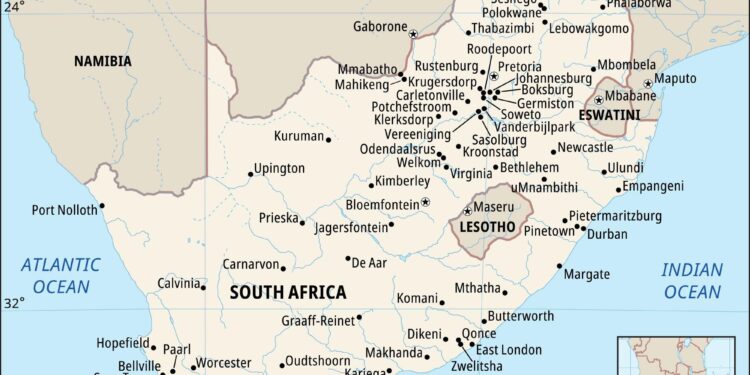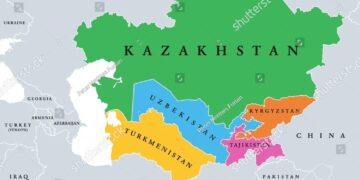South Africa’s Historic G20 Presidency: Championing Unity, Fairness, and Sustainable Progress
Leading with Unity: South Africa’s Vision for a Balanced Global Economic Recovery
Marking a landmark moment in international diplomacy, South Africa has stepped into its role as the first African host of the G20 summit. As the continent’s largest economy, it leverages this prestigious platform to advocate for a global order that is more inclusive and responsive to the needs of developing nations. Against the backdrop of lingering economic challenges from the COVID-19 pandemic and widening inequalities worldwide, South Africa underscores the necessity of collective action to ensure no country is marginalized in recovery efforts.
Central to its agenda are urgent topics such as food security enhancement, equitable healthcare access, and sustainable development initiatives. By fostering collaboration between advanced economies and emerging markets alike, South Africa aims to cultivate an environment where shared knowledge drives mutual prosperity. This approach not only addresses immediate economic stabilization but also lays groundwork for resilient growth that benefits all members.
Embedding Sustainability into Economic Revival Strategies
Sustainability stands at the heart of South Africa’s G20 leadership priorities. The nation advocates for recovery plans that transcend mere economic rebound by integrating environmental preservation as a fundamental pillar. This includes promoting investments in renewable energy technologies—such as solar and wind power—and encouraging innovation in green infrastructure projects that simultaneously generate employment opportunities.
The presidency calls on member states to rethink traditional growth models by prioritizing long-term ecological resilience over short-lived financial gains. For example, recent data from the International Renewable Energy Agency (IRENA) highlights that renewable energy jobs worldwide reached over 13 million in 2023—a figure expected to grow substantially with increased global commitment. Through this holistic vision, South Africa seeks not only immediate impact but also enduring cooperation beyond this summit.
Advancing Equality: Strategies for Inclusive Growth Across Communities
South Africa’s leadership at the G20 places strong emphasis on dismantling systemic inequalities through targeted policies designed to uplift marginalized populations.
- Skills Development Initiatives: Expanding educational programs tailored specifically toward underrepresented groups enhances workforce readiness.
- Facilitating Equal Business Opportunities: Supporting small- and medium-sized enterprises (SMEs) ensures broader participation within local economies.
- Robust Social Safety Nets: Strengthening healthcare systems alongside food security measures protects vulnerable citizens during crises.
The agenda further integrates sustainable practices aligned with international climate commitments while addressing social disparities simultaneously. Recent discussions among leaders have underscored several key focus areas:
- The Green Energy Shift: Accelerating adoption of clean energy solutions creates new job markets while reducing environmental impact.
- Sustainable Infrastructure Development: Investing in transport networks and digital connectivity bridges rural-urban divides enhancing equitable service delivery.
- Cultivating Global Partnerships: Encouraging cross-border collaboration facilitates resource sharing essential for inclusive development goals.
Sustainability as a Cornerstone: Policy Recommendations Shaping Future G20 Frameworks
The inaugural hosting by South Africa has brought sustainability sharply into focus within G20 dialogues—transforming it from rhetoric into actionable commitments centered on solidarity and fairness among nations.
- Pledges Toward Renewable Energy Expansion: Countries are urged to increase investments targeting clean power generation projects aimed at lowering carbon emissions globally.
- Sustainable Agricultural Practices Support:A push towards eco-friendly farming methods promotes biodiversity conservation while securing food supplies amid climate uncertainties.
- Nurturing Innovation in Green Technologies:An emphasis on joint research endeavors accelerates breakthroughs necessary for transitioning economies sustainably forward.
A critical component involves ensuring equitable access for developing countries through mechanisms like a proposed G20 Green Fund, a financial instrument designed specifically to back environmentally focused initiatives across less-resourced regions.
The table below illustrates some leading contributions pledged by member states toward these sustainability goals:
<
| >Nation<< /th>> < | >Committed Funding<< /th>> < | >Primary Focus Area<< /th>> << /tr>> << /thead >> < |
|---|---|---|
| >South Africa<< /td >> < | >$550 Million<< /td >> < | >Renewable Energy Projects<< /td >> <<"tr"> > <<"td">Germany<<"/td"> <<"td">$1 Billion<<"/td"> <<"td">Green Technology Research<<"/td"> <<"/tr"> <<"tr"> <<" td ">Brazil<<" / td " > $”320 Million”<<" / td " > “Sustainable Farming Initiatives”<<" / td " > “” “” “” Conclusion: Insights from South Africa’s Pioneering Role at G20The commencement of South Africa’s tenure as G20 host signals an important shift towards embedding principles of unity, fairness, and ecological responsibility within global governance frameworks. By elevating these themes throughout discussions involving world leaders—from economic stabilization strategies post-pandemic through climate action—the nation positions itself not only as an influential voice representing African interests but also as a catalyst inspiring renewed multilateral cooperation worldwide. This pivotal engagement holds promise beyond symbolic significance; it may redefine how international partnerships address complex challenges such as inequality exacerbated by globalization or environmental degradation threatening future generations.
| .
.
.













